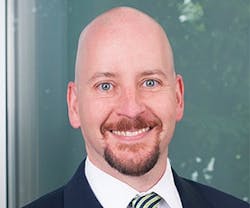Looking Ahead: Facility Staffing in 2015 and Beyond
By Pete Campie
With 2015 now well underway, what should we expect to happen in facilities management staffing within the next few years? Managing Director Jim Lord from Helbling & Associates, Inc., a search firm for facilities professionals, answered a few questions about what FMs and organizations should expect to see in the future.
BUILDINGS: What trends are affecting facility management recruitment?
Lord: We’re seeing clients desire business-savvy and technological expertise more than anything else. In the past, facility managers could get by with strong technical skills and not have as strong of a background in business and computer literacy, but that’s not the case anymore. Frequently our clients are looking for individuals who know how to make business decisions, how to conduct ROI analyses, and how to use a computer competently.
The days of paper work order systems are in the past – surpassed by systems that generate electronic work orders, hand them off, and track them by computer. Organizations want their facility managers to put handheld devices in their technicians’ hands and take pictures of their work order once it’s completed to be filed electronically. While the range in systems runs the gamut, computer skills are essential because the days of tracking things with paper and binders are gone.
BUILDINGS: What specific skills are most desirable for FMs?
Lord: Energy has come increasingly to the forefront, with energy management, utilities management, procurement, and conservation all playing instrumental roles. Not only are companies focusing more on these to save costs but also for the carbon footprint issues related to energy usage. I frequently represent universities and the importance of energy is apparent, as students are very interested in knowing how the university is getting its power, whether or not efficiency measures are being taken, and the subsequent effect on the planet. All of these have made the energy issue much more visible than in the past.
The other major trend I’ve seen is the desire for business skills. While in the past a facility manager was trusted to simply make the right decisions regarding systems, now more sophisticated financial officers realize that there are a lot of options and choices to be made regarding how systems and infrastructure are set up. These organizations are looking for people who can explore these options with regard to ROI and payback cycle, and who approach things in a more bottom-line or ledger book oriented approach.
BUILDINGS: How are you seeing FMs communicate initiatives to their occupants and the community?
Lord: The most sophisticated facility managers recognize green improvements as a great opportunity not only for PR but to engage end users and students (if at a university) by getting them excited about green initiatives. If you’re at a university that has a sustainability program and you’re not taking advantage of the free labor available from interns, you’re doing something wrong! I’ve even seen some facility managers create their own newsletters that keep facilities’ initiatives and improvements at the forefront of everyone’s mind, which can also provide an advantage when interfacing with boards of directors.
BUILDINGS: What changes in the recruitment process do you anticipate in the future?
Lord: I’ve been doing this for 17 years and the biggest change I’ve seen within the past few years: fewer and fewer qualified candidates, which usually surprises our clients. Organizations looking to find a Director of Facilities, for instance, often think they can place an ad in the paper and find 50 qualified candidates. It’s not that way anymore, and organizations have to work more diligently to find the right person.
BUILDINGS: Why do you think we’re seeing a lack of qualified candidates?
Lord: Part of it has to do with generational dynamics. Consider that there are 80 million baby boomers and 78 million millennials, in between those groups is Generation X with about 46 million people, making it the smallest generation. The Gen X’ers are 34-49 years old, mid-career people who are just stepping into a director-level position and due to the numbers, there are fewer available. My personal theory is that they’re also the first generation to have computer engineering careers available to them, meaning a lot of the people who may have previously gone into engineering have chosen IT instead.
BUILDINGS: What advice would you give a non-traditional candidate looking to break into the FM field?
Lord: Get your education, first and foremost! A lot of employers offer tuition reimbursement, and I recommend a mechanical engineering degree or a degree in facilities management. Technical degrees such as engineering or architecture are preferred so you can converse with the consultants you’ll be engaging as part of your position. Credibility with the folks on staff is key. If you don’t know the difference between a chiller and a fan, you’ll quickly lose that credibility so education is important. My other advice would be to continuously learn, read up on trade publications, stay abreast of new advancements, and share all of this with your manager! If you have a good manager, your efforts will be recognized and you’ll get the opportunity to advance within your role.
